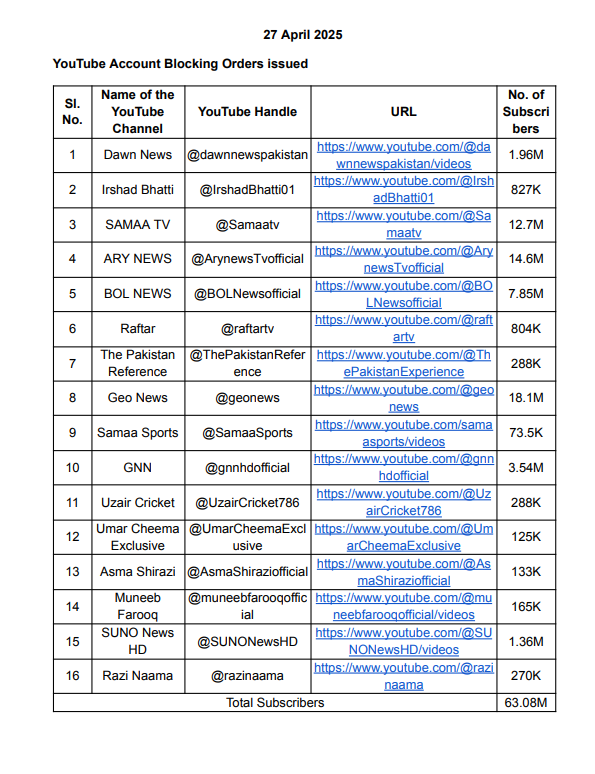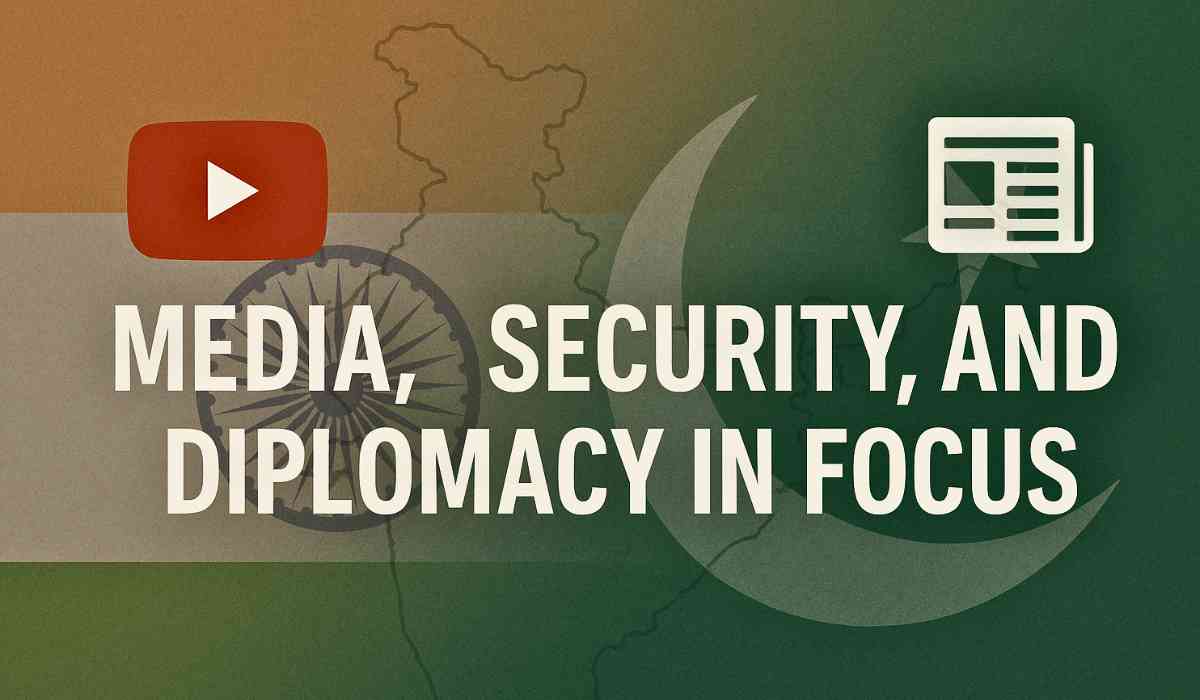In the wake of the tragic terror attack in Pahalgam, Jammu and Kashmir, where 26 tourists lost their lives, the Indian government has taken stringent measures against media channels it deems to be spreading provocative and misleading content. Among these steps is the ban on 16 Pakistani YouTube channels, including prominent outlets such as Dawn News, Samaa TV, ARY News, and Geo News. Additionally, the Indian High Commission has sent a formal letter to the BBC, seeking clarification over its use of the term “militants” instead of “terrorists” in its coverage of the attack.
Background of the Ban

The Pahalgam attack on April 22, 2025, is considered one of the deadliest in recent years, reminiscent of the 2019 Pulwama attack. Following this incident, the Indian Ministry of Home Affairs recommended the ban on these channels, citing their role in disseminating provocative, communally sensitive content, and false narratives targeting India, its Army, and security agencies. The government stated that such content threatens national security, public order, and communal harmony.
The banned Pakistani channels collectively have millions of subscribers, with Geo News alone having over 18 million subscribers and ARY News around 14.6 million. The ban covers a broad spectrum of media including news, sports, and entertainment channels.
Broader Diplomatic and Security Measures

This media crackdown is part of a larger set of diplomatic and security responses by India against Pakistan. These include the suspension of the Indus Waters Treaty, closure of the Integrated Check Post at Attari, suspension of visa exemptions for Pakistani nationals, and reduction of diplomatic staff on both sides. The heightened tensions have also led to increased cross-border firing incidents between the two countries.
The BBC Warning
Apart from the YouTube channel bans, the Indian government has also engaged with international media. The Indian High Commission sent a letter to the BBC requesting clarification on the terminology used in their reporting of the Pahalgam attack. India objects to the use of the term “militants” instead of “terrorists,” reflecting the sensitivity around language and its impact on public perception and diplomatic relations.

The ban on these channels raises important questions about freedom of expression, media responsibility, and national security. On one hand, governments have a duty to protect their citizens from misinformation and content that could incite violence or communal disharmony. On the other hand, such bans can be seen as limiting access to diverse viewpoints and could escalate tensions between countries.
The Indian government’s move reflects a growing trend where digital platforms become battlegrounds for information wars, especially amid geopolitical conflicts. Social media and online news channels have immense reach and influence, making them critical tools for shaping narratives. However, this also means misinformation can spread rapidly, potentially fueling unrest.

India’s ban on 16 Pakistani YouTube channels including Dawn News, alongside diplomatic actions and warnings to international media like the BBC, underscores the complex interplay between media, national security, and international relations. While aimed at curbing provocative and false content, these measures also highlight the challenges of balancing security concerns with the principles of free speech and open media access. As tensions remain high, the role of media will continue to be closely watched by both governments and citizens alike.
This development is a reminder of how digital platforms are increasingly central to geopolitical conflicts and the importance of responsible media consumption and reporting in sensitive times.
With inputs from agencies
Image Source: Multiple agencies
© Copyright 2025. All Rights Reserved Powered by Vygr Media.

























